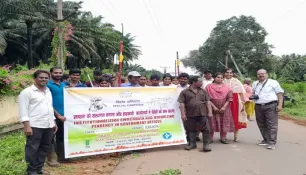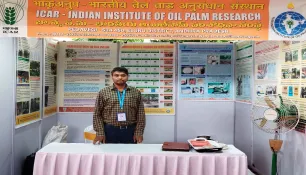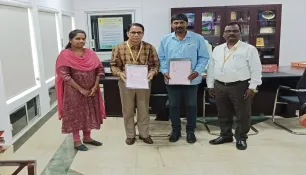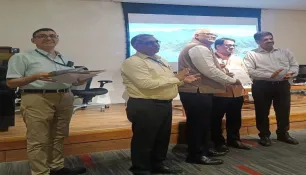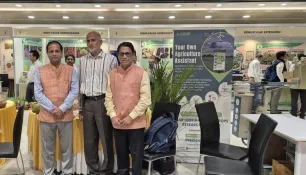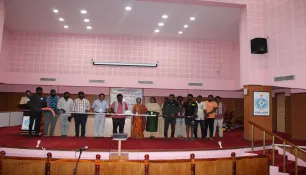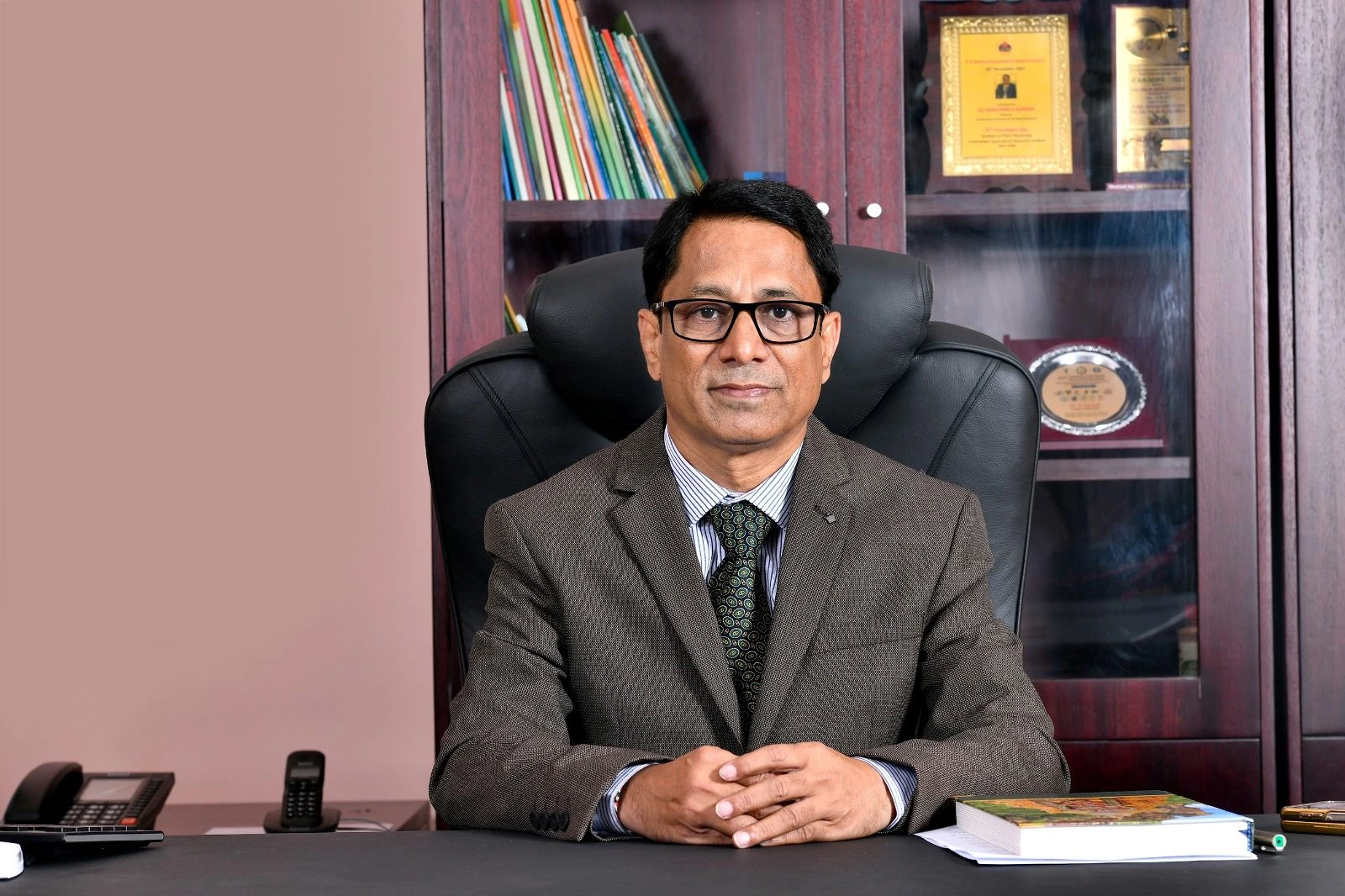
Oil palm is an important crop playing a vital role in global food production, biofuels, and a variety of industrial applications. Through scientific research and technological innovation, ICAR-IIOPR would aim to develop solutions that address the critical issues of oil palm sector in India - such as developing oil palm hybrids with high oil yield, dwarfness and better oil quality, improving resource use efficiency, enhancing the resilience of oil palm to climate change, capacity building of stakeholders, technology transfer and adoption etc. In order to meet these targets and make oil palm cultivation more profitable, the Institute is working broadly on the aspects of genetic enhancement and utilization, hybrid seed production, molecular breeding, tissue culture, precision agriculture, cropping systems approach, sustainable environment, mechanization, post harvest technology, transfer of technology and ICT.
ICAR-IIOPR plays an important role in production and distribution of quality planting materials through standardizing seed production and nursery management techniques and supply of advanced parental material for establishment of new seed gardens. It is recognized as National Active Germplasm Site for oil palm. A total of 3306 germplasm collected from exotic and indigenous sources are being evaluated in field gene banks at ICAR-IIOPR, Pedavegi, Andhra Pradesh and Research Centre, Palode, Kerala. Third generation hybrids with targeted oil yield of 7-8 t/ha and dwarf hybrids were developed and under evaluation in AICRP and farmers fields. ICAR-IIOPR is offering technical support for implementation of research programmes at six AICRP centres established in different States for conducting multi-location research. Bio-markers were developed for differentiation of fruit forms based on shell thickness which can be effectively used at early stages to avoid loss of time and space. Two SSR markers were identified which can be used to identify dwarf from tall plants. Standardisation of tissue culture protocol using immature male inflorescence is being taken up.
The research efforts made at the Institute helped in developing fertilizer and fertigation techniques for efficient nutrient management. Standardised biomass decomposition and nutrient recycling techniques which can reduce 50 % of inorganic fertilizers. Cropping systems for adoption in juvenile and adult oil palm plantations were standardized which increases profitability of the system. Integrated pest and disease management techniques were standardized for major pests and diseases. Oil palm site suitability maps were developed for all the oil palm growing states in the country.
Two models of improved harvesting sickles with light weight high strength poles were developed for harvesting fresh fruit bunches from tall palms. A tool for ablation was designed, patented and commercialized. Trunk chipping bucket was developed for removal of old and senile palms. Recent efforts in the field of engineering helped in development of mathematical models for predicting mass, surface area & area of fruits. Developed Image processing system prototype for capturing of oil palm FFB images at controlled conditions. Developed technology for preparation of chiffon cake & cookies using palm oil as shortening.
The Institute is conducting training programmes to officers and farmers involved in oil palm. Scientists of IIOPR under take diagnostic field visits to farmers’ plantations of all the oil palm growing States. The Institute produced 8 video capsules and 2 digital video films along with 23 mobile apps. The Institute implements NEH, TSP and SCSP programmes by organising awareness programmes, training programmes, skill demonstrations, distribution of inputs etc. ICAR-IIOPR caters to oil palm research and development to 22 States of Country for making India, Atmanirbhar Bharat in vegetable oil production. It also handholds Dept. of Agriculture & Farmers Welfare, GOI, Niti Aayog and Prime Minister’s Office in technical knowledge of oil palm research for making important policy decisions to oil palm stakeholders of Country.
With the present level of rapid increase in per capita consumption of vegetable oils in the country, it is expected that the estimated population of 1620 million in 2050 may need 40.5 million tonnes of vegetable oils at the estimated per capita consumption of 25.00 kg. By 2050, if an area of 20 lakh ha is covered under oil palm, the country must be able to produce about 14 million tonnes of oil from oil palm. Hence, the role of ICAR- IIOPR would be of critical importance in the emerging vegetable oil scenario in India. The research planning is being done at the Institute to align with the SDGs of the nation and the progress is continuously monitored for on-course corrections.
The Institute would like to adopt cutting edge research initiatives like Metabolomics profiling for Development of hybrids with lower degree of saturated fatty acids; Sensors and Automation for Precise resources management; Life cycle Assessment, Carbon and Water footprints for Environment Sustainability; Exploitation of endophytes for Suppression of pests and diseases; AI and ML tools for mechanization, mapping of oil palm plantations and development of maturity standards. We are proud of the strides made in research and development, and we remain steadfast in our mission to contribute to sustainable growth of oil palm industry. This could make India become self-reliant in vegetable oil production sector in the years to come. As we look to the future, we will continue to innovate, share knowledge, and lead in the creation of a more profitable oil palm sector in the country.

